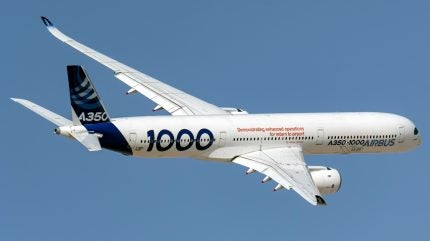
The European Union Aviation Safety Agency (EASA) has mandated inspections on all A350-1000 aircraft powered by Rolls-Royce Trent XWB-97 engines following an engine fire incident on a Cathay Pacific aircraft earlier this week.
The regulator said all aircraft specified must have their engines inspected for an issue with the flexible fuel hose connections that were identified as the cause of concern on the Hong Kong carrier’s plane, which was forced to return mid-flight on 1 September.
EASA’s executive director Florian Guillermet said: “This action is a precautionary measure, based on the information received from the initial investigation of the recent Cathay Pacific serious incident and on the airline’s findings in its own subsequent inspections.”
EASA’s mandate expands the scope of the impact of the Cathay Pacific incident after the airline temporarily grounded 15 of its A350 jets after discovering issues with their engines.
As a state of design airworthiness authority for the aircraft and engine, the EASA said there are 86 A350-1000 aircraft in service worldwide which will need to be inspected within the next 3-30 days.
Rolls-Royce’s share price dropped by almost 3% in the aftermath of the EASA’s announcement but already appears to be recovering with investors likely awaiting the long-term impact of the inspections.

US Tariffs are shifting - will you react or anticipate?
Don’t let policy changes catch you off guard. Stay proactive with real-time data and expert analysis.
By GlobalDataThe XWB-97 issue is just the latest problem to hit the jet engine market amid wider struggles with supply chain issues, which led Airbus to drop its aircraft delivery expectations for 2024 in June.



